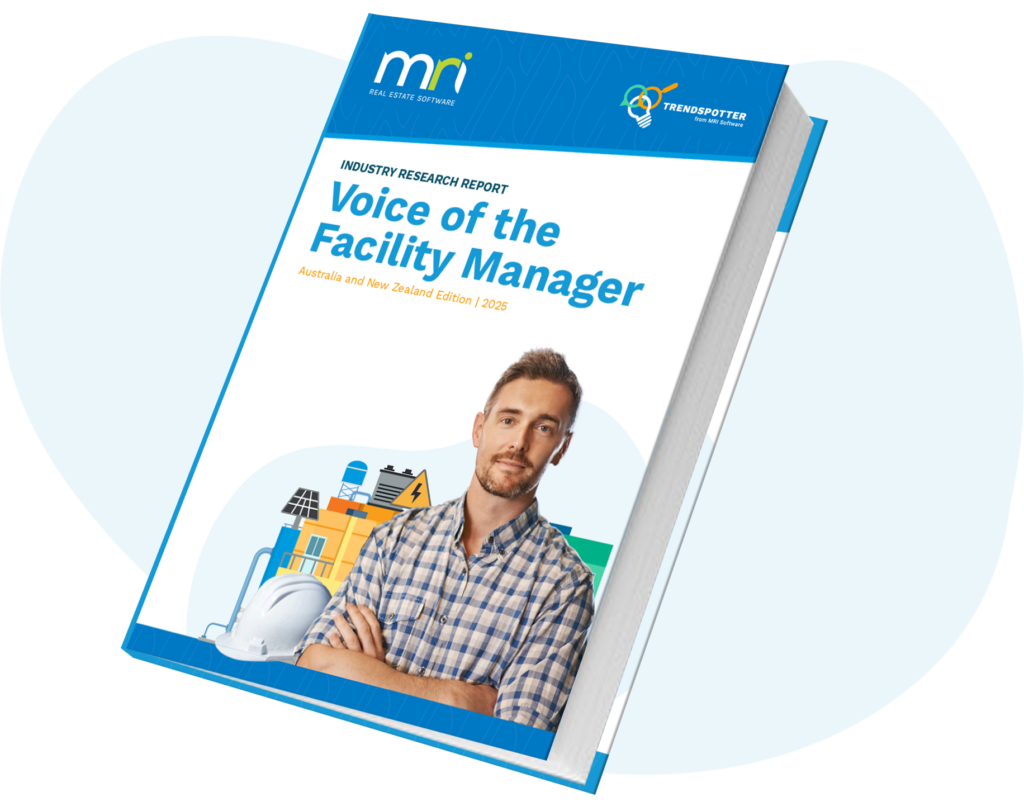Why is facilities management important in the hospitality industry?
Facilities management plays a critical role in the hospitality industry, ensuring that properties run smoothly, guests are satisfied, and operations remain cost-effective. From maintaining essential systems to managing guest services, the functions of facilities management are key to a hotel or resort’s success.
MRI Software offers innovative facilities management software solutions designed to streamline these operations, allowing you to effectively manage maintenance, safety, and compliance. In this article, we’ll explore why facilities management is so important in the hospitality industry and how it can enhance guest experiences, operational efficiency, and sustainability.
Facilities Management software
Leading solutions for property occupiers, owners and service providers & contractors.

What is facilities management in the context of hospitality?
Facilities management in hospitality refers to the coordinated management of the physical resources, services, and infrastructure that are necessary for an establishment to function smoothly. This extends beyond simple maintenance and repairs, encompassing all aspects of operational functionality, including health and safety compliance, energy management, waste disposal, and even guest services.
In hotels and resorts, facilities managers oversee housekeeping, landscaping, laundry, and maintenance teams to ensure that every aspect of the guest’s environment meets or exceeds industry standards. This broad scope of responsibilities requires careful planning, staff management, and a strategic approach to prevent disruptions and optimise the guest experience.
How does facilities management affect guest experience?
Facilities management plays a direct role in shaping the guest experience. A well-managed facility ensures that guests encounter clean, well-maintained spaces from the moment they arrive. This includes everything from the comfort of their rooms to the cleanliness of common areas and the reliability of amenities such as hot water, Wi-Fi, and climate control.
When facilities are well-maintained, guests enjoy a smooth and comfortable stay, reducing the likelihood of complaints and negative reviews. On the other hand, facilities issues like malfunctioning air conditioning, dirty rooms, or unsafe environments can quickly diminish the guest experience, leading to dissatisfaction and damaging a property’s reputation. In a competitive industry, facilities management is key to delivering the high-quality experiences that keep guests returning.
What key responsibilities are involved in hospitality facilities management?
Hospitality facilities management involves a wide range of responsibilities that ensure the property remains operational, safe, and welcoming. These include:
- Routine maintenance and repairs: Keeping HVAC systems, plumbing, electrical systems, and elevators in good working order.
- Housekeeping and cleanliness: Ensuring guest rooms, common areas, and back-of-house areas are consistently clean and well-maintained.
- Safety and security: Implementing and maintaining fire alarms, surveillance systems, and emergency protocols.
- Waste management and environmental practices: Handling waste efficiently and ensuring compliance with environmental regulations.
- Guest services and comfort: Managing aspects like laundry services, pest control, and amenities such as pools and fitness centres to enhance guest comfort.
How does effective facilities management enhance operational efficiency?
Operational efficiency is a key benefit of effective facilities management in hospitality. By ensuring that all equipment and infrastructure are functioning properly, facilities managers reduce the likelihood of disruptions that can negatively impact both staff productivity and guest satisfaction. A well-maintained facility also streamlines daily operations, allowing staff to focus on providing excellent service without being burdened by unexpected maintenance issues.
What are the benefits of regular maintenance and upkeep?
Regular maintenance and upkeep are essential to preventing costly breakdowns and ensuring that the facility runs smoothly. Scheduled maintenance allows for the early detection of issues such as equipment wear and tear, which can be addressed before they escalate into more serious problems. For example, regularly servicing your HVAC system can prevent malfunctions during peak guest seasons, ensuring a comfortable environment without the need for emergency repairs.
Regular maintenance extends the lifespan of equipment, reducing the need for frequent replacements and helping you manage costs more effectively. It also ensures that facilities meet safety and compliance standards, further protecting your establishment from liability risks.
How does facilities management contribute to cost savings?
Facilities management contributes to cost savings in several ways. By preventing unexpected breakdowns and extending the lifespan of equipment, regular maintenance reduces the need for costly emergency repairs or replacements. Energy management is another key area where facilities management can lead to significant savings. Through the use of energy-efficient systems, optimising HVAC performance, and reducing water consumption, facilities managers can lower utility bills while contributing to sustainability efforts.
Well-maintained facilities minimise the likelihood of accidents or safety hazards, reducing potential legal costs related to liability issues. By investing in facilities management, you protect your bottom line and ensure long-term financial stability.
How can facilities management improve safety and compliance?
Safety and compliance are two critical areas that facilities management addresses in the hospitality industry. Ensuring that safety standards are met not only protects guests and staff but also shields the business from legal risks. Facilities managers play a key role in maintaining compliance with health and safety regulations, fire codes, and building standards.
What safety standards must be met in hospitality facilities?
In the hospitality industry, safety standards cover a wide range of areas, including fire safety, sanitation, and structural integrity. Fire alarms, sprinkler systems, emergency exits, and proper ventilation are just a few of the requirements that must be met to ensure guest safety. Regular inspections and maintenance checks help facilities managers ensure that all safety systems are functioning properly and up to code.
In addition, sanitation standards are crucial, especially in dining areas, kitchens, and guest rooms. Ensuring proper cleaning and waste disposal practices helps protect both guests and staff from health hazards.
How does facilities management ensure compliance with health and safety regulations?
Facilities managers are responsible for ensuring that all aspects of the property comply with local, national, and international health and safety regulations. This includes conducting regular inspections, ensuring that fire safety systems are up to date, and implementing protocols for emergency situations. Facilities managers must stay informed about any changes to regulations and update procedures accordingly to remain compliant.
By keeping meticulous records and performing routine checks, facilities managers can ensure that the establishment meets the necessary health and safety standards, minimising risks and legal liabilities.
What impact does facilities management have on sustainability in hospitality?
Sustainability is becoming an increasingly important focus for the hospitality industry, and facilities management plays a significant role in driving eco-friendly practices. From energy efficiency to waste reduction, effective facilities management can help hospitality businesses reduce their environmental footprint while also improving cost-efficiency.
How can sustainable practices be integrated into facilities management?
Sustainable practices can be integrated into facilities management through several initiatives, such as implementing energy-efficient lighting, optimising water usage, and reducing waste. Facilities managers can also explore the use of renewable energy sources, such as solar panels, to reduce reliance on fossil fuels. Sustainable building materials and environmentally friendly cleaning products are other ways to minimise environmental impact.
Encouraging guests to participate in sustainability efforts, such as reusing towels or conserving water, can further enhance a hotel’s eco-friendly reputation while contributing to long-term environmental goals.
What are the long-term benefits of eco-friendly facilities management?
The long-term benefits of eco-friendly facilities management extend beyond reducing environmental impact. By investing in sustainable technologies and practices, hospitality businesses can achieve significant cost savings through reduced energy and water consumption. Adopting sustainable initiatives can attract environmentally conscious guests, enhancing the property’s marketability and brand reputation.
In the long run, integrating sustainable practices into facilities management helps hospitality businesses stay ahead of industry trends, meet regulatory requirements, and create a positive impact on both the environment and their bottom line.
Contact MRI Software
To find out more about how MRI Software can help you, contact us today on 1300 657 700.
Voice of the Facility Manager Report – 2025 Australian & New Zealand Edition
The role of the Facilities Manager is ever-evolving. From the adoption of new technologies like AI to the need to adapt practices to suit today’s more flexible building usage requirements, Facilities Managers are being asked to balance numerous respo…

